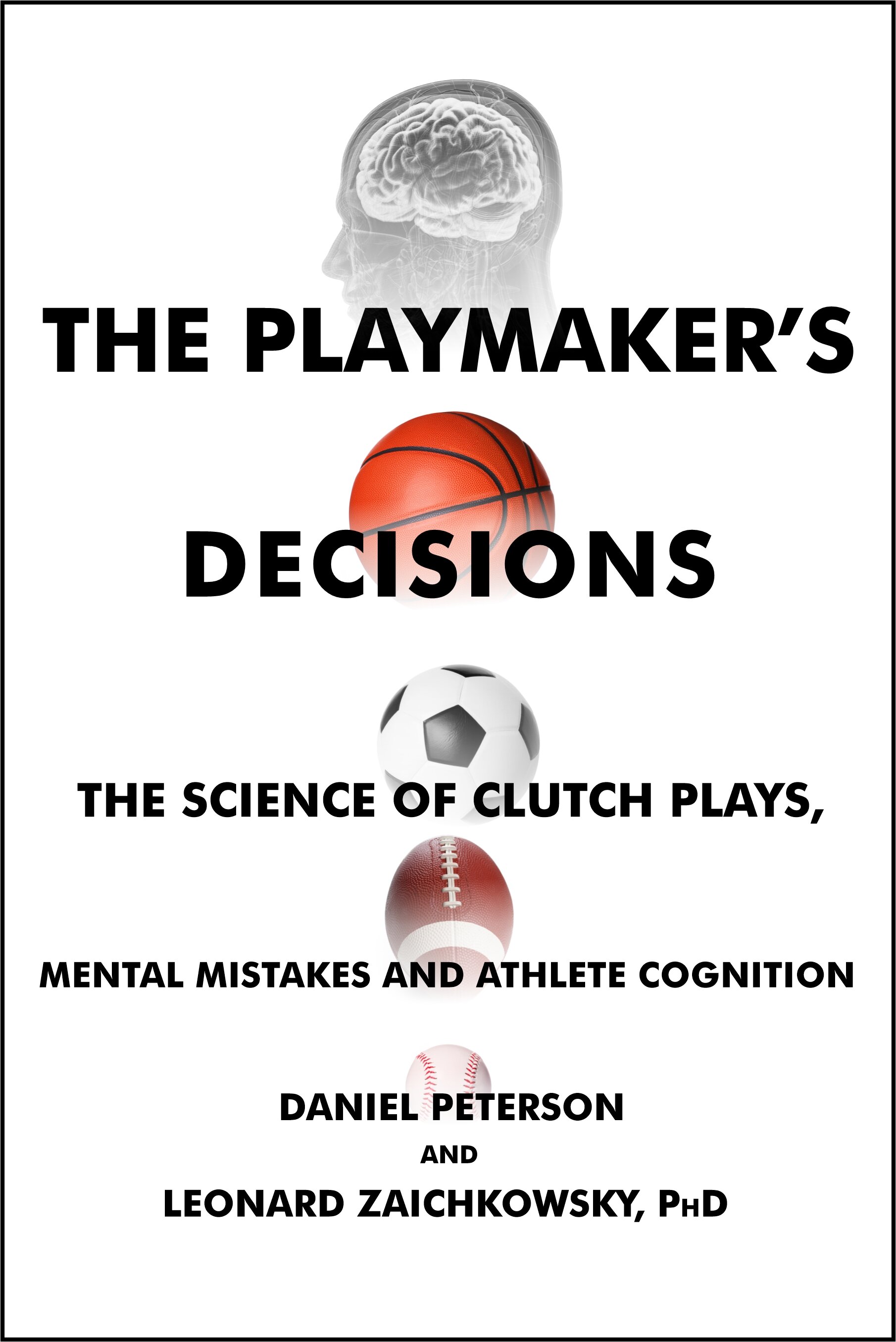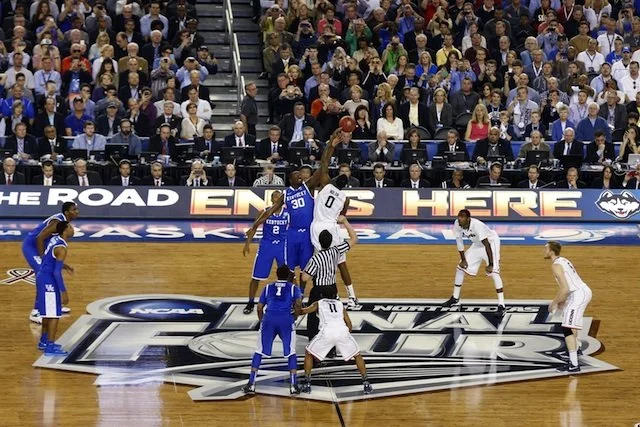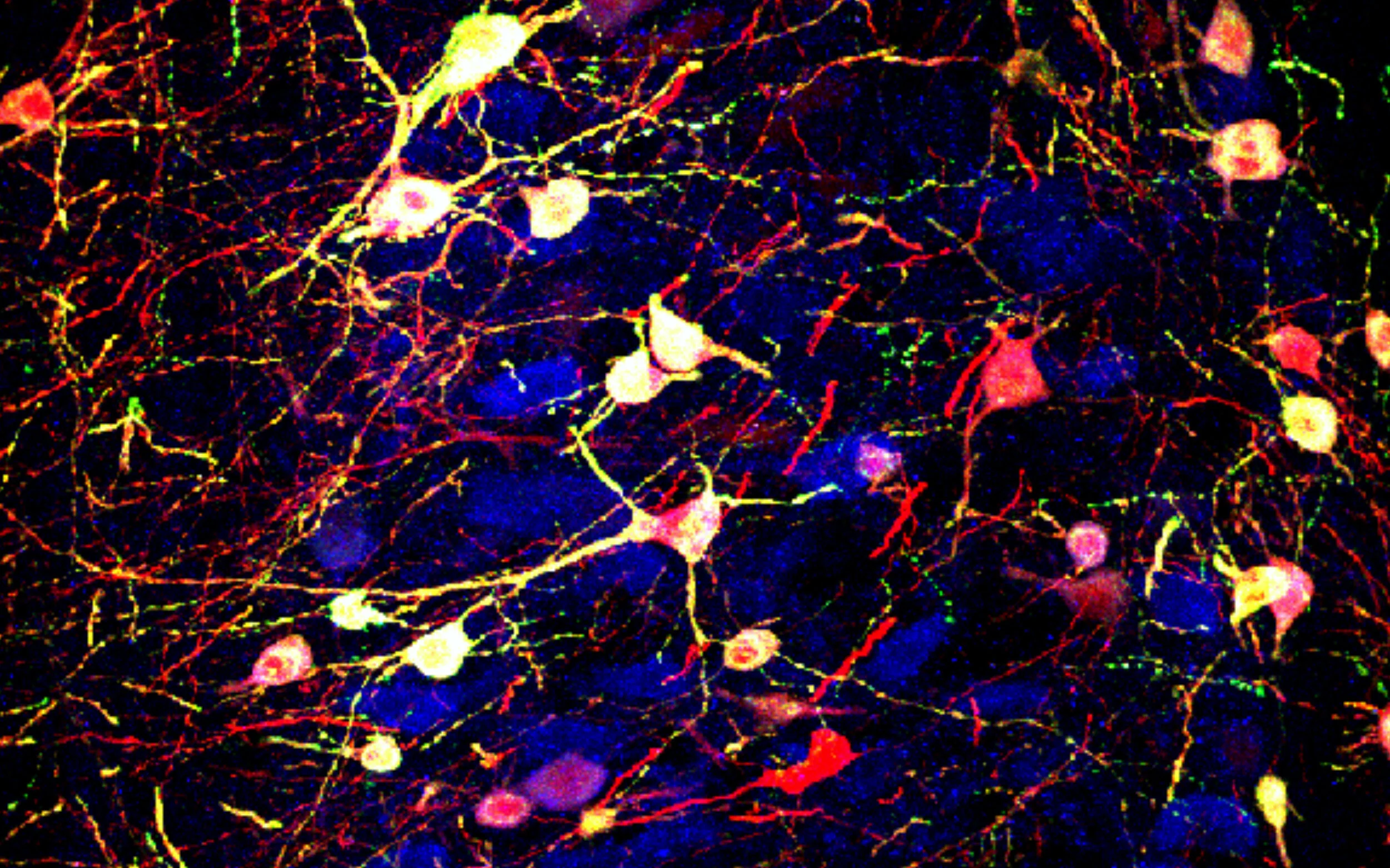Is This How Barcelona's Xavi Makes Decisions?
/
When Xavi Hernandez receives the soccer ball in his offensive half
of the field, the Barcelona maestro has a world of decisions waiting
for him. Hold the ball while his teammates arrive, make the quick
through pass to a slicing Lionel Messi or move into position for a
shot.
The question that decision researchers want to know is whether Xavi’s brain makes a choice based on the desired outcome (wait, pass or shoot) or the action necessary to achieve that goal. Then, could his attitude towards improvement actually change his decision making ability?
Traditionally, the decision process was seen as consecutive steps; first choose what it is you want then choose an action to get you there. However, a recent study from the Montreal Neurological Institute and Hospital at McGill University tells us that the brain uses two separate regions for these choices and that they are independent of each other.
“In this study we wanted to understand how the brain uses value information to make decisions between different actions, and between different objects,” said the study’s lead investigator Dr. Lesley Fellows, neurologist and lead researcher. “The surprising and novel finding is that in fact these two mechanisms of choice are independent of one another. There are distinct processes in the brain by which value information guides decisions, depending on whether the choice is between objects or between actions.”
Fellows’ team asked two groups of patients to play games where they chose between either two actions (moving a joystick) or two objects (decks of cards). Each group had previous damage to different areas of the frontal lobes of their brains. They could win or lose money based on the success of their choices.
Those that had damage to the orbitofrontal cortex could make correct decisions between different actions but struggled with choices about different objects. Conversely, the other group, having sustained injury to the dorsal anterior cingulate cortex, had difficulty with action choices but excelled with object choices.
Dr. Fellows hopes this is just the beginning of more neuro-based studies of decision making. “Despite the ubiquity and importance of decision making, we have had, until now, a limited understanding of its basis in the brain,” said Fellows. “Psychologists, economists, and ecologists have studied decision making for decades, but it has only recently become a focus for neuroscientists.”
So, back to Xavi, it seems his decision-making may be a multi-tasking mission by his brain. Of course, we may never be able to judge the accuracy of any soccer player’s decisions since the actual execution of the motor skills required has an critical effect on the outcome. In other words, the decision to thread a pass through defenders may be an excellent choice but a number of variables could spoil it, including a mis-kick by Xavi, a sudden last movement by Messi or an alert defender intercepting the pass.
As rare as this may be, Xavi may actually consider his decision a mistake. How he reacts to that mistake depends on his opinion of neuroplasticity, according to Jason S. Moser, assistant professor of psychology at Michigan State University. ”One big difference between people who think intelligence is malleable and those who think intelligence is fixed is how they respond to mistakes,” claims Moser.
He hypothesized that those people, including athletes, who think that their intelligence is fixed often don’t make the extra effort required to learn from their mistakes as they think its futile. However, if you believe your brain continues to evolve and change over your lifetime, then you will bounce back sooner from a mistake and work harder to improve.
To prove this, his team gave volunteers a memory task to remember the middle letter of a five letter sequence, like “MMMMM” or “NNMNN.” The participants also wore an EEG skull cap that measured brain signals. After we make a mistake, our brain sends two signals within a quarter second of each other; the first alerts us that we made a mistake while the second signal that indicates we’re aware of the mistake and are working on a solution.
For those in the test group that thought their brains could be improved, they not only did better on successive tests but the second signal from their brain was significantly bigger, indicating their brains were working harder to correct the mistake. If Xavi feels he can only get better, he will process any mistake at a fundamentally different neuro level than other players. ”This might help us understand why exactly the two types of individuals show different behaviors after mistakes,” concluded Moser.
Facing a player like Xavi who not only multitasks decisions but also believes he can learn from any mistakes must be a depressing thought for Barcelona’s opponents.
For more stories on the brain and sports, visit Axon Potential on Twitter and Facebook
The question that decision researchers want to know is whether Xavi’s brain makes a choice based on the desired outcome (wait, pass or shoot) or the action necessary to achieve that goal. Then, could his attitude towards improvement actually change his decision making ability?
Traditionally, the decision process was seen as consecutive steps; first choose what it is you want then choose an action to get you there. However, a recent study from the Montreal Neurological Institute and Hospital at McGill University tells us that the brain uses two separate regions for these choices and that they are independent of each other.
“In this study we wanted to understand how the brain uses value information to make decisions between different actions, and between different objects,” said the study’s lead investigator Dr. Lesley Fellows, neurologist and lead researcher. “The surprising and novel finding is that in fact these two mechanisms of choice are independent of one another. There are distinct processes in the brain by which value information guides decisions, depending on whether the choice is between objects or between actions.”
Fellows’ team asked two groups of patients to play games where they chose between either two actions (moving a joystick) or two objects (decks of cards). Each group had previous damage to different areas of the frontal lobes of their brains. They could win or lose money based on the success of their choices.
Those that had damage to the orbitofrontal cortex could make correct decisions between different actions but struggled with choices about different objects. Conversely, the other group, having sustained injury to the dorsal anterior cingulate cortex, had difficulty with action choices but excelled with object choices.
Dr. Fellows hopes this is just the beginning of more neuro-based studies of decision making. “Despite the ubiquity and importance of decision making, we have had, until now, a limited understanding of its basis in the brain,” said Fellows. “Psychologists, economists, and ecologists have studied decision making for decades, but it has only recently become a focus for neuroscientists.”
So, back to Xavi, it seems his decision-making may be a multi-tasking mission by his brain. Of course, we may never be able to judge the accuracy of any soccer player’s decisions since the actual execution of the motor skills required has an critical effect on the outcome. In other words, the decision to thread a pass through defenders may be an excellent choice but a number of variables could spoil it, including a mis-kick by Xavi, a sudden last movement by Messi or an alert defender intercepting the pass.
As rare as this may be, Xavi may actually consider his decision a mistake. How he reacts to that mistake depends on his opinion of neuroplasticity, according to Jason S. Moser, assistant professor of psychology at Michigan State University. ”One big difference between people who think intelligence is malleable and those who think intelligence is fixed is how they respond to mistakes,” claims Moser.
He hypothesized that those people, including athletes, who think that their intelligence is fixed often don’t make the extra effort required to learn from their mistakes as they think its futile. However, if you believe your brain continues to evolve and change over your lifetime, then you will bounce back sooner from a mistake and work harder to improve.
To prove this, his team gave volunteers a memory task to remember the middle letter of a five letter sequence, like “MMMMM” or “NNMNN.” The participants also wore an EEG skull cap that measured brain signals. After we make a mistake, our brain sends two signals within a quarter second of each other; the first alerts us that we made a mistake while the second signal that indicates we’re aware of the mistake and are working on a solution.
For those in the test group that thought their brains could be improved, they not only did better on successive tests but the second signal from their brain was significantly bigger, indicating their brains were working harder to correct the mistake. If Xavi feels he can only get better, he will process any mistake at a fundamentally different neuro level than other players. ”This might help us understand why exactly the two types of individuals show different behaviors after mistakes,” concluded Moser.
Facing a player like Xavi who not only multitasks decisions but also believes he can learn from any mistakes must be a depressing thought for Barcelona’s opponents.
For more stories on the brain and sports, visit Axon Potential on Twitter and Facebook












